第46章 THE PULPIT AND THE PEW.(2)
>From the settlement of the country to the present time, the ministers have furnished the highest type of character to the people among whom they have lived. They have lost to a considerable extent the position of leaders, but if they are in our times rather to be looked upon as representatives of their congregations, they represent what is best among those of whom they are the speaking organs. We have a right to expect them to be models as well as teachers of all that makes the best citizens for this world and the next, and they have not been, and are not in these later days unworthy of their high calling. They have worked hard for small earthly compensation. They have been the most learned men the country had to show, when learning was a scarce commodity. Called by their consciences to self-denying labors, living simply, often half-supported by the toil of their own hands, they have let the light, such light as shone for them, into the minds of our communities as the settler's axe let the sunshine into their log-huts and farm-houses.
Their work has not been confined to their professional duties, as a few instances will illustrate. Often, as was just said, they toiled like day-laborers, teasing lean harvests out of their small inclosures of land, for the New England soil is not one that "laughs when tickled with a hoe," but rather one that sulks when appealed to with that persuasive implement. The father of the eminent Boston physician whose recent loss is so deeply regretted, the Reverend Pitt Clarke, forty-two years pastor of the small fold in the town of Norton, Massachusetts, was a typical example of this union of the two callings, and it would be hard to find a story of a more wholesome and useful life, within a limited and isolated circle, than that which the pious care of one of his children commemorated. Sometimes the New England minister, like worthy Mr. Ward of Stratford-on-Avon, in old England, joined the practice of medicine to the offices of his holy profession. Michael Wigglesworth, the poet of "The Day of Doom," and Charles Chauncy, the second president of Harvard College, were instances of this twofold service. In politics their influence has always been felt, and in many cases their drums ecclesiastic have beaten the reveille as vigorously, and to as good purpose, as it ever sounded in the slumbering camp. Samuel Cooper sat in council with the leaders of the Revolution in Boston. The three Northampton-born brothers Allen, Thomas, Moses, and Solomon, lifted their voices, and, when needed, their armed hands, in the cause of liberty. In later days, Elijah Parish and David Osgood carried politics into their pulpits as boldly as their antislavery successors have done in times still more recent.
The learning, the personal character, the sacredness of their office, tended, to give the New England clergy of past generations a kind of aristocratic dignity, a personal grandeur, much more felt in the days when class distinctions were recognized less unwillingly than at present. Their costume added to the effect of their bodily presence, as the old portraits illustrate for us, as those of us who remember the last of the "fair, white, curly" wigs, as it graced the imposing figure of the Reverend Dr. Marsh of Wethersfield, Connecticut, can testify. They were not only learned in the history of the past, but they were the interpreters of the prophecy, and announced coming events with a confidence equal to that with which the weather-bureau warns us of a coming storm. The numbers of the book of Daniel and the visions of the Revelation were not too hard for them. In the commonplace book of the Reverend Joel Benedict is to be found the following record, made, as it appears, about the year 1773:
"Conversing with Dr. Bellamy upon the downfall of Antichrist, after many things had been said upon the subject, the Doctor began to warm, and uttered himself after this manner: 'Tell your children to tell their children that in the year 1866 something notable will happen in the church; tell them the old man says so.'"
The "old man" came pretty near hitting the mark, as we shall see if we consider what took place in the decade from 1860 to 1870. In 1864 the Pope issued the "Syllabus of Errors," which "must be considered by Romanists--as an infallible official document, and which arrays the papacy in open war against modern civilization and civil and religious freedom." The Vatican Council in 1870 declared the Pope to be the bishop of bishops, and immediately after this began the decisive movement of the party known as the "Old Catholics." In the exact year looked forward to by the New England prophet, 1866, the evacuation of Rome by the French and the publication of "Ecce Homo" appear to be the most remarkable events having Special relation to the religious world. Perhaps the National Council of the Congregationalists, held at Boston in 1865, may be reckoned as one of the occurrences which the oracle just missed.
The confidence, if not the spirit of prophecy, lasted down to a later period. "In half a century," said the venerable Dr. Porter of Conway, New Hampshire, in 1822, "there will be no Pagans, Jews, Mohammedans, Unitarians, or Methodists." The half-century has more than elapsed, and the prediction seems to stand in need of an extension, like many other prophetic utterances.